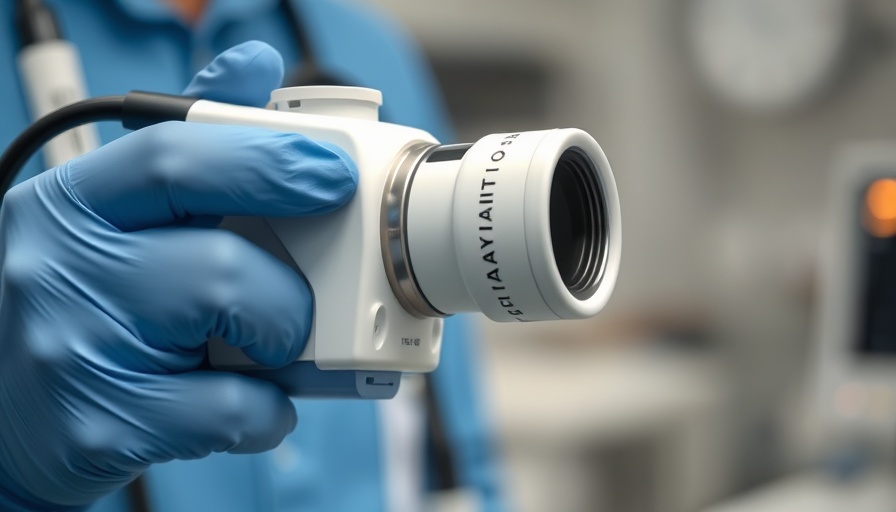
AI in Colonoscopy: A Double-Edged Sword for Clinical Skills
Recent studies have unveiled an intriguing dilemma within the medical community: the over-reliance on artificial intelligence (AI) in colonoscopies could inadvertently erode the very skills that clinicians have honed over years of practice. A significant study presented at The Lancet Gastroenterology & Hepatology highlights concerning trends as endoscopists who became accustomed to using AI showed decreased performance when reverting to traditional methods. The adenoma detection rate (ADR)—a crucial measure of the procedure's effectiveness—dropped alarmingly from 28.4% to 22.4% following the introduction of AI tools into routine practice.
These findings, documented by Dr. Krzysztof Budzyn and his colleagues from Poland, raise unsettling questions about the long-term implications of dependence on technology in a clinical setting. With AI resurfacing as a powerful tool in boosting patient outcomes, will clinicians see diminished motivation and diagnostic confidence when supported by human intuition alone?
Understanding the Google Maps Effect
This phenomenon, aptly dubbed the "Google Maps effect" by co-author Dr. Marcin Romańczyk, compares the challenges faced by clinicians returning to non-AI-assisted methods with those of individuals who become overly reliant on GPS for navigation. According to Romańczyk, “Imagine that you want to travel anywhere, and you're unable to use Google Maps. It works very similarly.” This analogy resonates with many professionals in healthcare who worry that disengagement occurs not from a lack of knowledge but rather from a decreased motivation to apply that knowledge when technology is at play.
The Challenges of Clinical Deskilling
The implications of the observed decline in ADR post-AI exposure extend beyond mere statistics; they underscore a potential desensitization among clinicians. As Omer Ahmad pointed out in an accompanying editorial, clinicians may exhibit weakened visual search habits and altered gaze patterns, impacting their ability to recognize patterns and make accurate judgments without AI assistance. This could ultimately compromise patient care, as the human element in diagnostics is imperatively nuanced.
Call for a Balanced Approach to AI Integration
In light of these revelations, there is an urgent call for medical institutions to advocate for a balanced approach to AI integration in colonoscopy procedures. Dr. Ahmad suggests implementing performance-monitoring guidelines from professional societies and promoting educational programs aimed at augmenting awareness about deskilling. Continuous training that integrates sessions without AI assistance may be vital in ensuring clinicians retain their proficiency in hands-on techniques.
Future Research Directions
The path forward, however, is fraught with complexity. High-quality studies are crucial in evaluating the behavioral impacts of AI usage in colonoscopy. Evidence-based practice must guide the way to understand how continuous reliance on AI tools can lead to skill erosion.
In Conclusion: Navigating the AI Landscape
The interplay between AI tools and clinician skills stands as a pivotal discussion point in current medical practices. As AI technologies continue to evolve in colonoscopy and other areas of healthcare, understanding the balance between benefiting from innovation and maintaining fundamental skills is essential. Healthcare professionals must acknowledge the nuanced challenges ahead while striving for excellence in patient care. Staying informed about these emerging insights ensures that clinicians remain adept and agile in both AI-assisted and traditional practices alike.
 Add Row
Add Row  Add
Add 




Write A Comment